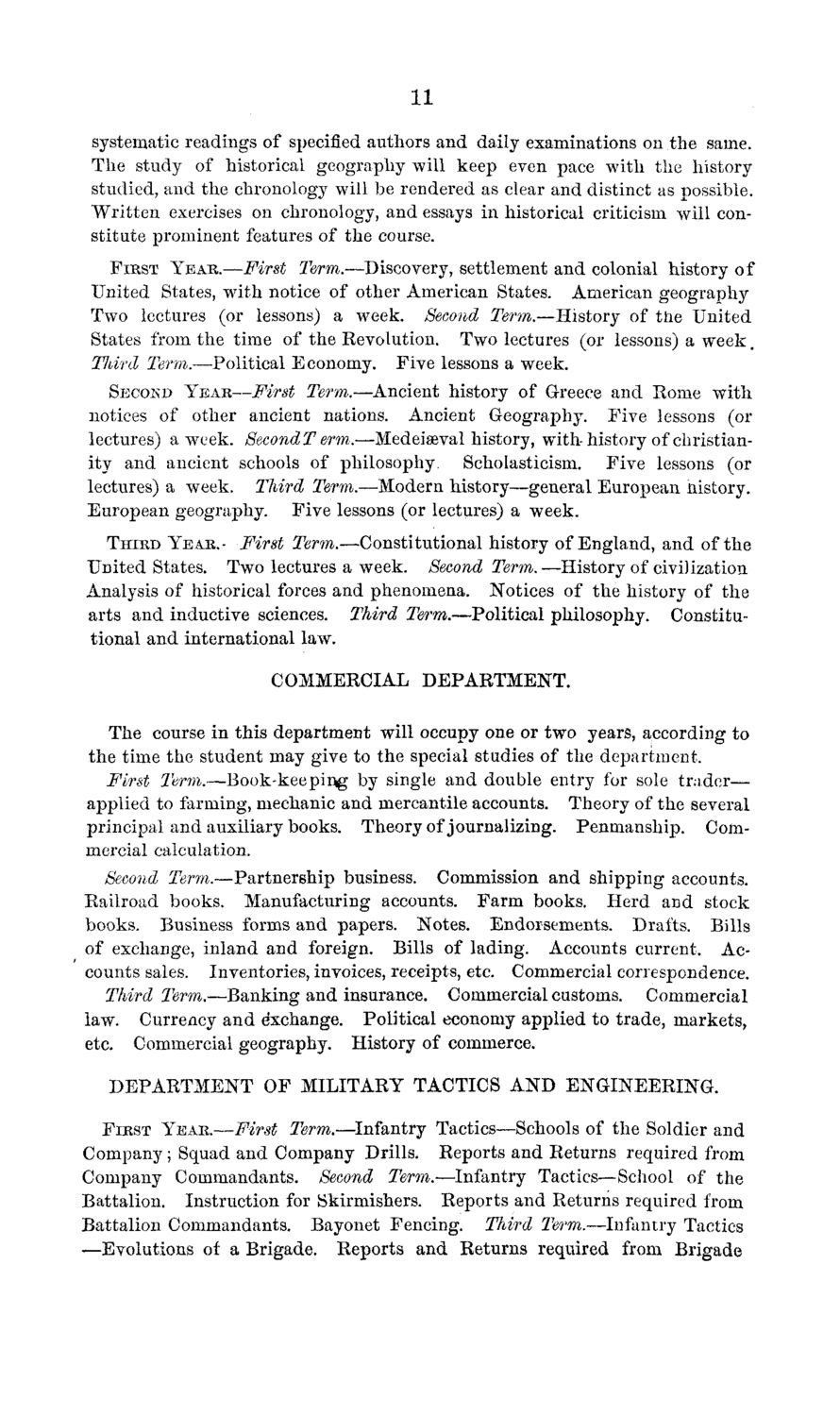| |
| |
Caption: Board of Trustees Minutes - 1869
This is a reduced-resolution page image for fast online browsing.

EXTRACTED TEXT FROM PAGE:
11 systematic readings of specified authors and daily examinations on the same. The study of historical geography will keep even pace with the history studied, and the chronology will be rendered as clear and distinct as possible. W r i t t e n exercises on chronology, and essays in historical criticism will constitute prominent features of the course. F I R S T Y E A R . — F i r s t Term.—Discovery, settlement and colonial history of United States, with notice of other American States. American geography Two lectures (or lessons) a week. Second Term.—History of the United States from the time of the Revolution. Two lectures (or lessons) a w e e k . Tliird Term.—Political Economy. Five lessons a week. SECOND YEAR—First Term.—Ancient history of Greece and Rome with notices of other ancient nations. Ancient Geography. Five lessons (or lectures) a week. Second T erm.—Medeiaeval history, w i t h history of Christianity and ancient schools of philosophy. Scholasticism. Five lessons (or lectures) a week. Third Term.—Modern history—general European History. European geography. Five lessons (or lectures) a week. T H I R D YEAR.- First Term.—Constitutional history of England, and of the United States. Two lectures a week. Second Term.—History of civilization Analysis of historical forces and phenomena. Notices of the history of the arts and inductive sciences. Third Term.—Political philosophy. Constitutional and international law. COMMERCIAL DEPARTMENT. The course in this department will occupy one or two years, according to the time the student may give to the special studies of the department. First Term.—Book-keeping by single and double entry for sole trader— applied to farming, mechanic and mercantile accounts. Theory of the several principal and auxiliary books. Theory of journalizing. Penmanship. Commercial calculation. Second Term.—Partnership business. Commission and shipping accounts. Railroad books. Manufacturing accounts. F a r m books. Herd and stock books. Business forms and papers. Notes. Endorsements. Drafts. Bills of exchange, inland and foreign. Bills of lading. Accounts current. Accounts sales. Inventories, invoices, receipts, etc. Commercial correspondence. Third Term.—Banking and insurance. Commercial customs. Commercial law. Currency and Exchange. Political economy applied to trade, markets, etc. Commercial geography. History of commerce. D E P A R T M E N T O F MILITARY TACTICS A N D E N G I N E E R I N G . F I R S T YEAR.—First Term.—Infantry Tactics—Schools of the Soldier and Company; Squad and Company Drills. Reports and Returns required from Company Commandants. Second Term.—Infantry Tactics—School of the Battalion. Instruction for Skirmishers. Reports and Returns required from Battalion Commandants. Bayonet Fencing. Third Term.—Infantry Tactics —Evolutions of a Brigade. Reports and Returns required from Brigade
| |